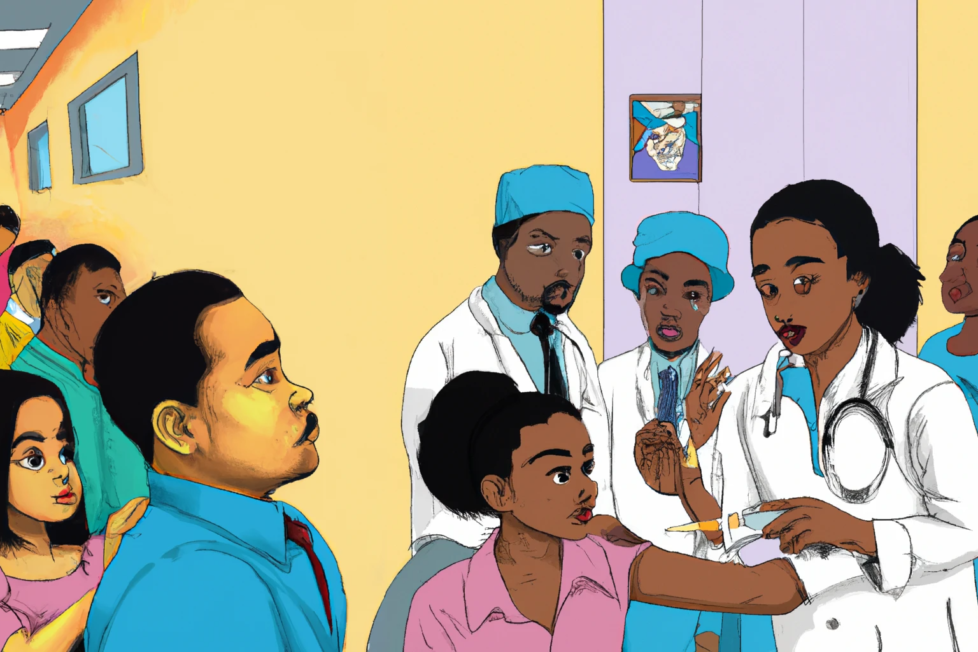In Brief: Pesticide Hypocrisy, energy crises, new university Rankings

Welcome to “In Brief,” a concise and engaging column dedicated to distilling the latest scientific discoveries and innovations into digestible insights. In a world where science never sleeps, we strive to keep you informed without overwhelming you with jargon.
Whether it’s a breakthrough in medicine, a technological marvel, or a glimpse into the cosmos, “In Brief” is your go-to source for understanding the complex world of science in just a few minutes. Join us as we explore the wonders of our universe, one brief moment at a time.
Seven children in DRC and Burundi were paralyzed after taking a new polio vaccine. Novel oral polio vaccine type 2, introduced two years ago, has a lower risk of sparking outbreaks compared to its predecessor. Nearly 600 million doses were administered in 28 countries without any health scares. While knowing the rarity of the outbreaks needs investigating, increasing vaccination coverage across Africa remains a public health priority.
COVID-19’s no longer a global emergency, says WHO. More than 800 million lives were lost. Africa, with only half vaccinated compared to the rest of the world’s three-fourths, isn’t a priority in global health. It seems we’re left to our own devices, or should I say vaccines? It’s high time we invest in our own drug development. Maybe then we’ll stop being the world’s ‘charity case’ and start being a ‘pharma powerhouse’. Now that’s a prescription for change!
Times Higher Education (THE) has announced a new ranking system for universities in sub-Saharan Africa. While the system claims to provide a comprehensive assessment of universities’ performance, it’s worth noting that THE is a profit-making entity. Their business model includes hosting industry conferences and providing consultancy services. As such, questions arise about the true motive behind this new system. Is it about addressing the challenges faced by African universities, or is it about expanding THE’s market reach?
Zimbabwe is set to transform a dozen high schools into technical secondary schools, providing students with vocational training. While this move could potentially equip students with practical skills, it raises questions about the future relevance of these skills and the availability of viable industries for hands-on training. As Zimbabwe takes this bold step, it’s worth asking: are we leading our students towards a promising future, or down a path of obsolescence?
Kenya’s President William Ruto made a compelling case at the 3rd Pan-African Parliamentarians Summit for Africa’s potential to be the world’s green powerhouse. Ruto’s vision of relocating global industrial production to Africa could redefine the global economic landscape, offering a path to prosperity that is both green and equitable. When China pushed for relocation of global production to its shores more than 800 million people were lifted out of poverty in 40 years. Here’s a trial and tested path to African Union’s Vision 2063!
Kenya has pioneered a tech revolution in Africa by introducing coding in its primary and secondary school curriculum. Building computer labs and training teachers has been a huge challenge, but partnerships with private companies, such as wildlife reserves helped foot the bill. Coding could transform Kenya into a tech innovation giant and secure a prosperous future for its youth. After all, the future is digital, and it’s time to embrace it.
Zimbabwe’s government-owned Verify Engineering has announced plans to convert the country’s coal reserves into fertilisers. This move, however, is not without its challenges. Coal gasification, the process at the heart of this project, releases more CO2 than fossil oil and natural gas. Moreover, it requires a significant amount of electricity – a resource already in short supply in Zimbabwe. The Hwange Colliery, where the ammonia plant is set to be located, is struggling to meet the country’s electricity demands. As this complex situation unfolds, one wonders where are the country’s scholars to do proper feasibility studies.
A recent Greenpeace study has exposed glaring inconsistency in the EU’s pesticide policies. Limes imported from Brazil and sold in several EU countries contained residues of pesticides that the EU has banned but continues to export to Brazil, and of course many other African countries. This duplicity has not only raised concerns about the health of EU citizens but also the integrity of the EU’s environmental policies.
“Paper mills” – they’re not crafting stationery but mass-producing dubious neuroscience and medical papers! Shockingly, a third of the research done in 2020 is probably tainted by this junk. Researchers craving promotions are the regular customers. Lucky us in Zimbabwe, our research menu is still paper mill-free. But with the Zimbabwe Council for Higher Education’s new promotion guidelines which demand publications as the main order of the menu, will we resist the temptation of this junk food? Let’s hope our diet remains healthy!
